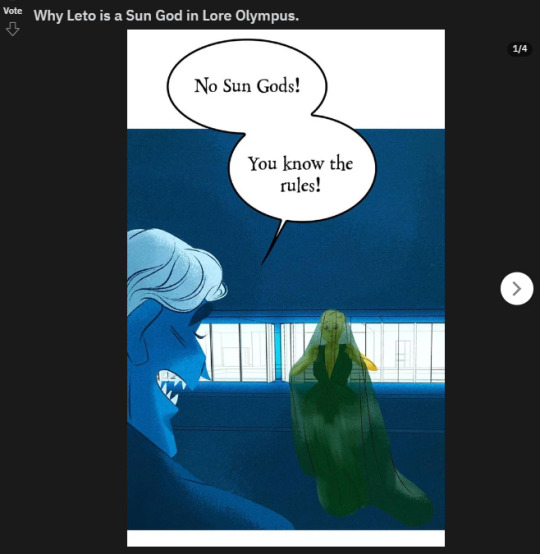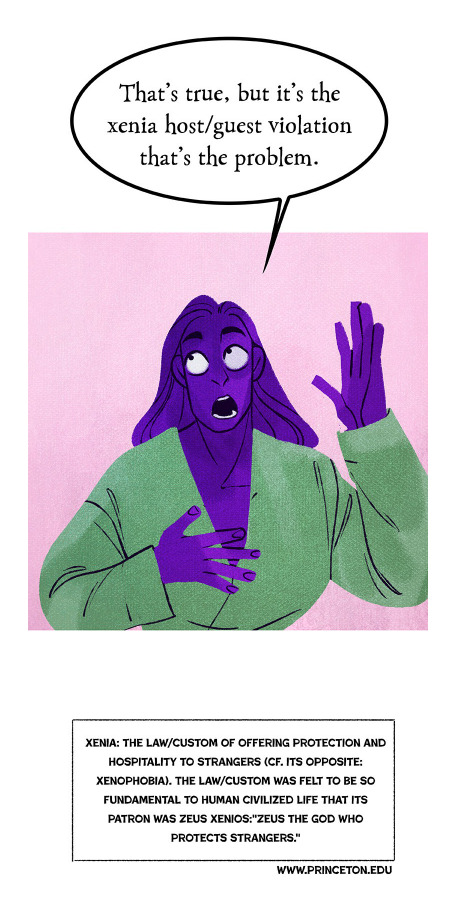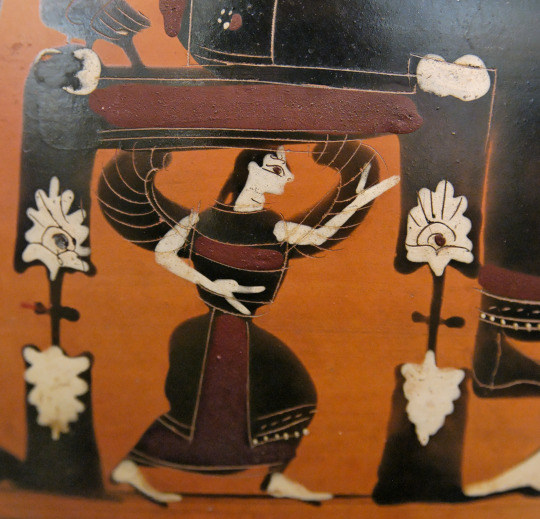#xenio
Text
ADHP anunciou vencedores dos Xénios 2024

25MAR24 - No final do primeiro dia do XX Congresso ADHP, que decorre em Aveiro nos dias 21 e 22 de março, a ADHP – Associação dos Diretores de Hotéis de Portugal anunciou os vencedores da edição de 2024 dos Prémios Xénios – Excelência na Hotelaria.
A atribuição dos prémios teve lugar numa cerimónia organizada no Centro de Congressos de Aveiro.
Os Xénios têm como objetivo reconhecer e distinguir os melhores diretores de hotel do país, bem como o melhor parceiro de negócio, tendo como período de avaliação o ano de trabalho anterior.
Vencedores dos Xénios 2024
- Melhor Diretor de Hotel: Joana Damião Melo (Senhora da Rosa, Tradition & Nature Hotel).
- Melhor Diretor de Alojamentos: Carla Inácio (Hilton Porto Gaia).
- Melhor Diretor de F&B: Sandra Nunes (Évora Hotel).
- Melhor Diretor Comercial/Marketing e Vendas: Afonso Magalhães (Mama Shelter Lisboa).
- Melhor Jovem Diretor de Hotel: Bruno Gamito (Wyndham Residences Alvor Beach e Hotel Baía Cristal).
- Melhor Gestor de Potencial Humano: Carla Silva (Minor Hotels).
- Melhor Parceiro de Negócio: Sogenave.
- Prémio Carreira: Manuel Proença (Hoti Hotéis).
Read the full article
0 notes
Text
Hoping and praying that my art for Glimmering Soirée doesn't end up giving "graphic design is my passion" because I'm trying so hard to edit it to look like a real card 😭
#praying that years of watching my dad work when I was little doesn't do me dirty#so excited for the jumpsuit that I have planned for Xenio though#depending on how this goes I might make art for the groovy too#dahlia's ocs#twst oc#twisted wonderland oc#oc
2 notes
·
View notes
Text
i just lost a point on my philosophy test because i said φιλία means friendship and the teacher wanted us to say it meant reception/hospitality ?? that’s ζένια wtf. yes they’re linked because strangers/xenoi need to be considered and welcomed as friends/philioi but still. am i wrong or is she just weird
#i am actually angry#her test was dumb#with stupid questions and answers that weren’t in the lesson#but this ??#have i overlooked a meaning of philia ??#idk but Zeus Philios = Zeus of Friendship and Zeus Xenios = Zeus of Hospitality#so why would my answer be wrong#classics student#philosophy student
2 notes
·
View notes
Text

Ansichtskarte / Vintage Postcard
Carnegie Library, XENIA, OHIO
1907
#Xenia#Xenio Ohio#Ohio#Philokartie#Bibliotheksphilokartie#Bibliotheksgeschichte#Library#LibraryHistory#USAPhilokartie#LibraryLife#LibraryArchitecture#Bibliotheksbau#deltiology
4 notes
·
View notes
Text
Sometimes I remember Sid was in Clash Of The Titans and I cringe a little inside because I love Sid but I hate that movie so much
#its a mythology massacre#a travesty of the theoi#why is io there? why is she not a cow?#why is the kracken there when its fuckin norse in origin#it should have been Cetus yknow the actual sea monster andromeda was going to be sacrificed to#also why do the theoi hate humans so much??#zeus xenios would never#god of law and order who? god of justice who? god of moral conduct who?#also villainizing hades... always hate it#except in the disney movie bc hades is funny there and tbh i don't even count it as a myth retelling
2 notes
·
View notes
Text
Spend your days happy and grateful
Avoid the taste of wanting and wasteful
Every good thing will come in moderation
Envy and greed will only lead to frustration
Choose your friends, carefree and kindly
Choose your words, careful and wisely
Always be there to lend a comforting shoulder
One will be there to share a day when you're older
Everybody says that life takes patience
But nobody wants to wait
Everybody says we need salvation
But nobody wants to be saved
The light in the tunnel is just another runaway train
The blue skies we wait on
Are gonna have to come after the rain
~ after the rain
4 notes
·
View notes
Text
Finalistas dos Prémios Xénios 2024 já são conhecidos

14MAR24 - A ADHP – Associação dos Diretores de Hotéis de Portugal vai revelar a lista de finalistas dos Prémios Xénios 2024 – Excelência na Hotelaria, no dia 21 de março, primeiro dia do XX Congresso da ADHP.
Os galardões vão distinguir o desempenho de seis diretores de hotel e de um parceiro de negócios que se tenham destacado no ano de 2023 em Portugal.
Após a abertura do período de candidaturas, a direção da ADHP selecionou um conjunto de nomeados para sete categorias: Melhor Diretor de Hotel, Melhor Diretor de Alojamentos, Melhor Diretor de F&B, Melhor Diretor Comercial/Marketing e Vendas, Melhor Jovem Diretor de Hotel, Melhor Gestor de Potencial Humano e Melhor Parceiro de Negócios.
Como nas edições anteriores, a direção da ADHP também vai reconhecer e distinguir uma individualidade de destaque no setor com o Prémio Carreira.
O XX Congresso Nacional da ADHP terá lugar no Centro de Congressos de Aveiro nos próximos dias 21 e 22 de março.

Na categoria Melhor Parceiro de Negócio foram selecionados: Coctail Team, Sogenave e Vista Alegre.
Read the full article
0 notes
Text
some epithets i found on theoi.com surrounding the theme of justice, civil safety, and the ability to be accepted by the gods because some people think our gods are not welcoming to those who are othered by society and don’t care about our individual politics, so i just have to prove them wrong
Aphrodite:
Aphrodite Pandemos - common to all people
Aphrodite Xenia - of the foreigner
Aphrodite Nikephoros - bringer of victory
Apollon
Apollon Akteios - of the foreigner
Ares
Ares Laossoos - he who rallies men
Artemis
Artemis Philomeirax - friend of young girls
Artemis Soteria - savior
Athena
Athena Eryma - defender
Athena Soteria - savior
Athena Poliatis - of the city
Athena Xenia - of hospitality, of the foreigner
Demeter
Demeter Thesmophoros - bringer of laws
Demeter Panakhaia - of all the greeks
Demeter Praxidikê - exactor of justice
Dionysus
Dionysus Eleuthereus - of liberation, freedom
Dionysus Saôtês - savior
Dionysus Politês - citizen
Dionysus Agyieus - protector of the streets, the ways
Hermes
Hermes Agoraios - of the marketplace
Hermes Hermêneutês - interpreter, translator
Hermes Pompaios - the guide
Poseidon
Poseidon Asphalios - secures safe voyage
Poseidon Laoitês - of the people
Zeus
Zeus Koryphaios - chief, leader
Zeus Amboulios - counsellor
Zeus Xenios - of hospitality, strangers
Zeus Phyxios - of refuge
Zeus Laoitês - of the people
Zeus Sôsipolis - city-savior
Zeus Eleutherios - of freedom
(all epithets found on theoi.com)
TERFs/Radfems/Racists/Homophobes/Ableists/etc. don’t clown on this post, just take a moment to learn and move on instead of harassing like you always do.
#hellenic polytheism#hellenic polytheist#deity worship#deity work#deities#epithets#deity epithets#hellenic epithets#hellenic pantheon#hellenic paganism#hellenic pagan#aphrodite*#apollon*#ares*#artemis*#athena*#demeter*#dionysus*#hermes*#poseidon*#zeus*#dove.txt#aphroditediety#apollondeity#aresdeity#artemisdeity#athenadeity#demeterdeity#dionysusdeity#hermesdeity
488 notes
·
View notes
Text
saw this pop up on /r/UnpopularLoreOlympus and I-



Full analysis post that inspired this post can be read here, it's a good read, go check it out!
Now my natural reaction to not assume the worst (shocking, I know) is that what Rachel's actual intention behind making Leto a sun god was due to her being Apollo's mother and her clearly having a stronger relationship with him rather than Artemis. I'm abiding by Occam's Razor here, it's the simplest answer and it keeps my brain from getting too riled up right off the bat LMAO
There's a lot of emphasis put on Apollo being the god of the sun in LO, despite the fact that Apollo is one of the MOST prolific gods in the Greek pantheon, Rachel only ever really focuses on him being god of the sun with some loose references to him also being the god of music (as we see with him playing his lyre). There's really no real referencing to him being the god of medicine though (aside from that scene of him condom-bandaging Persephone's hand in Episode 22 ?? which is silly now in hindsight because she's a fertility goddess who can heal herself but ok lmao and the fact that Rachel established him as a LITERAL DAD with his doctor son Asclepius which ... just feels weird to have in LO tbh) and there's absolutely no referencing (from what I can find or recall) of him being a protector of the young, god of prophecy (for some reason he just magically gives Kassandra the ability to read prophecies... just so she can read his prophecy ??) or archery. Like, he's shown doing a lot of these things but they come across more as just side hobbies or extensions of him being Artemis' brother (like his archery) rather than aspects of his godliness or domains that he presides over. It's just like yeah, Apollo can shoot arrows and bandage people's hands I guess LMAO
All that said, I can see Rachel deciding to make him primarily the god of the sun and then going "oh! let's make his mom a sun god! then she could be a common enemy for both Persephone and Hades!" because Hades doesn't like sun gods yadda yadda.
But... we know Rachel has used front page Google sourcing in her comic before.


(literally the 'source' was copy pasted from a 2004 study guide for Princeton.edu. And we KNOW this was taken right from the first result because it just says 'www.princeton.edu' with no slug attached, which is what showed up back when we first looked into this, the princeton version was deadass the first result with this definition word for word. She didn't even remove the typo where there's no space between Xenios:"Zeus !!!).
And while a bit more into sus territory rather than outright confirmed like the xenia thing above, there's the whole Metis / Métis theory, that has us wondering if Rachel seriously googled "Metis" on its own and accidentally used Indigenous Métis cultural depictions in her version of Metis, the Greek God.



The fringe in her outfit, finger wings, and dark orange/red color really got my attention the first time I saw her design years ago, because she set off so many, "Wait a minute, is that an Indigenous woman???" bells in my Mi'kmaq/Cree brain LMAO And not even in a bad way, but now it feels a little :/ because of how much her character has been assassinated and how clearly accidental it was for her to look like that.
Of course, there's still a more likely explanation that her design was based on this vase:

But IDK y'all. That vase is very distinctly orange while the character itself is depicted in dark garbs and with light skin, so Metis being distinctly red-toned with finger wings and fringe?

While the Xenia thing is definitively copy pasted from the first search result on Google (literally there's no denying that at this point, Rachel's REALLY bad at doing research and then pretending like she was being smart by sourcing it from a university website... completely ignoring the fact that that website literally hasn't been updated since Rachel was working on The Doctor Pepper Show) the Metis and Leto depictions are definitely a lot more up for debate as to what 'research' Rachel did and whether or not they got confused with something else during her searching.
And really, the whole thing with Leto being a "sun god" doesn't make sense really when you think about it. Why is Leto a sun god? It's not even like you could argue there are "some versions" of the myths where she's a god of the sun, or other translations out there, or whatever vague source that could be used like what has been used for other gods like Hades and Persephone. Leto is not affiliated with the sun in any shape or form. Remove Apollo, her eventual son, who didn't exist when she was born and given the title of 'sun god', and it quickly falls apart as to why she would be a sun god in the first place.
She is a goddess of motherhood though, and that's NEVER mentioned in LO. If anything, Rachel makes her a terrible mom on purpose. Because god knows we can't have anyone in this comic be a good mom except for Persephone and Rhea (who are literally just carbon copies of one another). Basically the only thing Rachel gets right with Leto is the fact that she's a Titan and that she had Apollo and Artemis after sleeping with Zeus. That's it.
Unfortunately, unlike the xenia thing, there's no outright proof of what Rachel's reasoning was behind these designs or sources. So I'm not gonna accuse or outright state it as fact that Rachel confused Metis for Métis or ripped the idea for Leto being a sun god from an anime, because the odds of that being true in any way are fairly low.
But they're never zero.
234 notes
·
View notes
Text
Favorite/Lesser known or lesser focused on Hermes epithets, both historical and upg. There are a lot of epithets that are easily applicable to Hermes and his roles/associations/domains for his endless reach. If it's one that I've given him as there is nothing there for that part of him it will have an asterisk (*) by it. Also, if you're expecting anything alphabetical you will be sorely disappointed.
Hermes Psithyristes - Whispering or The Whisperer. It highlights Hermes as the god who whispers his advice to the ear of those who ask him. It doesn't take much to look at this epithet and connect it to his oracle connected to Hermes Agoraios. Those that look to learn the knowledge of the future will tell him personally and hear his answer through the people that resonates with the one asking.
*Hermes Xenios - Of the Stranger/Guest or Of Hospitality. It goes without saying considering he is a god of the home, one that protects it (and any in the home) by every entrance as well as the god of travelers and friend of man.
Hermes Agroter - Of the Field.
Hermes Epikthonios - Dwelling on Earth/Earthly.
*Hermes Nyktelios - Of the Night, Nocturnal. I personally heavily connect him to the night and he has many historical domains in connection to it. Zeus and Maia met in the night and Hermes has lovers meet in the night, delights in it, and travels through it.
Hermes Pyledokos - The Door Watcher. Important to the divine pairing of Hestia and Hermes especially prominent as two gods of the home. Hestia dwelled inside, found at the very heart and in every room while Hermes was the one protecting every entrance to keep out what isn't wanted.
Atlantiades - In relation to his mother as a daughter of Atlas, signifying his status as the Titan's grandson.
Hermes Epiklopios/Klepsiphronos - The Stealthy-minded.
*Hermes Troglodýtis - One who crawls in holes or caves, such as a snake or fox, Cave Dweller/Dwelling, plus it also relates to wrens under the genus name. Contextually this is highly specific to his domain over mountains and caves and animals like snakes and those in the Canidae family, as well as my upg connection to Hermes and wrens (and birds in general).
Hermes Pantokrátōr - Ruler of the World/Ruler of All or All-powerful. It might have only been used once or twice as far as documentation goes but it's definitely earned a spot here. It's more on a personal basis for the worshipper and holds importance to me.
Hermes Koryphaîos - Leader of the Chorus. In relation to his position with the many Nymphai (Nymphs), he was the deity most associated with them and stood between man and the Nymphai for their worship.
*Hermes Aîtos - Something given: allotment, share. Easily applicable to his position in regard to life and death as well as luck. I also connect it to his relation to the Moirai as someone that works with them in a similar manner to Tykhe. Could be ambiguous as to whether it is positive or negative (or somewhere in between).
*Hermes Oîtos - Fate, Doom. In a similar vein to Hermes Aîtos but no longer ambiguous as it has a more negative meaning to it. More specifically in relation to Hermes Psykhopompos and Hermes Khthonios who works with the Moirai, Thanatos, and Kharon. The epithet in relation to death and the afterlife, one part of the cog that keeps the world in order that waits for us all at the end of our thread of life weaved by the Fates.
Hermes Areiās - Warlike, Curser, or Defender/Protector, possibly He who succors Ares. Outside of Mycenaean times could easily apply in relation to Hermes Kriophoros and Hermes Keryx (a mix of the two), as well as his domain over diplomacy and heralds that all play a part in war.
Hermes Dendrites - Of the Trees.
Hermes Kedrites - Of the Cedar Trees. The source of this epithet comes from Syme (Crete) where he is a god of vegetation and initiation into adulthood with Aphrodite.
Hermes Dromios - Of the Stadium.
*Hermes Klazo - To make a sharp piercing sound.
Hermes Syskopos - Sharp Sighted.
*Hermes Kosmâs (Hermes Kósmos also works) - Derived from kosméô (κοσμέω) kósmos (κόσμος), meaning order, lawful, government, ornament, decoration, honor, credit, world, universe, earth. It's an epithet that I hold close to me and hold with great importance for my special interest and adoration of space and everything in it. As Hermes is a god of astronomy, astrology, and constellations (making them in conjunction with Hera as well as teaching others about them), as well as his relation with his blue supergiant star immediate family and another epithet of mine Star-Born. The god that is both really ancient (as far as historical records and appearance(middle-aged)) and super young with so much life and energy with many eras to live through. A god of galaxies, their death, and birth in a cycle that is wide-reaching and covers the infinite and sometimes just a figurative coverage of how much he does. From the universe(s) back is his reach and everything he has hands in, as well as everything yet to connect to him for the past and future.
Hermes Deilakrion - Poor fellow. God of the greedy, lions, the devourer, the starving, the hungry, one that can't be contained or restrained. The one god I personally associate with driving those looking to learn no matter what to feel insatiable in the hunt for it. Also akin to a bringer of knowledge for the forbidden, what might drive one mad but make one enlightened.
Hermes Oneiropompos - Bringer of Dreams. For all the people that struggle to sleep and to remember dreams (like me), he ensures it. I have never slept so soundly and dreamed so vividly as I have with him.
*Hermes Episteme - Knowledge, Understanding (Science basically). He is the drive that spurns others on for the sake of creation, to find out the intricacies of life and what's good and bad. The god that fucks around and finds out regardless of the outcome with good intentions to know what to continue and stay away from.
Potnios Theron - Master of Animals.
*Hermes Tríbō - To Rub, Friction. A double meaning both as the creator of fire without reliance on nature that can be done by anyone with the right tools/knowledge. It also relates to Hermes' domain and part to play with marriage, the consummation, and unity during the first night. In the company of Aphrodite, Hermes makes this pass and for the modern day can easily represent a passionate night between two people that love each other.
*Hermes Astronómos - Pertaining to his domain over astrology and astronomy (especially as the one that teaches it), but especially with space and the stars as a whole. If it exists out there beyond the blue sky we are familiar with it's deeply connected to him.
*Mercurius Arieto/Arietare - To strike violently like a ram, batter, or to disturb, harass, or disquiet. A hundred percent a UPG/SPG epithet but one that stands out, especially with the person he becomes under the name of Mercurius/Mercury. A god more tightly wound with an intensity barely restrained behind an air of calm and indifference. It appropriately covers the change to fit the new culture and people that worshipped him under this name, a wolf-like god with sharp teeth and horns to show his wild nature.
Hermes Katokhos - To bind or restrain.
Hermes Kranaios - Of the Fountain? Of Springs.
*Hermes Keleasma - A shout implying authority and urgency. The idea is of a loud, authoritative cry, often uttered in the thick of great excitement. He is the deity whose voice is louder than anyone else's by a wide berth. Stentor(ians) will quiver before him as he has no match.
Hermes Kandaules - The Dog-Throttler or Throttler of the Beast. A Lydian god, an epithet denoting religious syncretism. Akin to an extension of Potnios Theron especially as one that tames animals especially predators and monsters like the Khimaira.
*Hermes Bromos/Bromios - For any sudden, loud noise, the crackling fire, and the roaring of the storm (the tearing or whistling wind).
*Hermes Anemos - To breathe, blow, wind, a violent agitation and stream of air.
*Hermes Philósophos - Loving wisdom, lover of knowledge/wisdom, educated, learned person, professor, philosopher, scientific, philosophic.
Hermes Kataibatês - Descending, in relation to Hermes being a conductor of souls and in his function as an underworld deity.
Sources:
Hermes a-re-ja: a new interpretation by José Marcos Macedo
Theoi.com
Hermes Epithets
"Candaules, whom the Greeks name Myrsilus … " by J. A. S. Evans
Miller, John F., and Jenny Strauss Clay (eds), Tracking Hermes, Pursuing Mercury (Oxford, 2019; online edn, Oxford Academic, 21 Mar. 2019), https://doi.org/10.1093/oso/9780198777342.001.0001
Bolling, George Melville. “Kandaules.” Language, vol. 3, no. 1, 1927, pp. 15–18. JSTOR, https://doi.org/10.2307/409642.
Lebessi, Angeliki. “Hermes as Master of Lions at the Syme Sanctuary, Crete.” British School at Athens Studies, vol. 18, 2010, pp. 195–202. JSTOR, http://www.jstor.org/stable/23276776
Chittenden, Jacqueline. “The Master of Animals.” Hesperia: The Journal of the American School of Classical Studies at Athens, vol. 16, no. 2, 1947, pp. 89–114. JSTOR, https://doi.org/10.2307/146954
Keleasma Definition
540 notes
·
View notes
Text
⚡️Epithets of Zeus⚡️
Zeus Ombrios- of the rain
Zeus Aphesios- releasing (rain-but I also interpret it to mean release in general)
Zeus Skotitas- dark, murky
Zeus Keraunios- of the thunderbolt
Zeus Astrapaios- of the lightning
Zeus Kataibatês- descending
Zeus Labrandeus- furious, raging
Zeus Konios- of the dust
Zeus Maimaktês- boisterous
Zeus Euênemos- of fair winds
Zeus Basileus- king, chief, ruler
Zeus Koryphaios- chief, leader
Zeus Ktêsios- of the house, property
Zeus Amboulios- counselor
Zeus Teleios- of marriage rites
Zeus Mêkhaneus- contriver
Zeus Kosmêtês- orderer
Zeus Theos Agathos- the good god
Zeus Epidôtês- giver of good
Zeus Philios- of friendship
Zeus Xenios- of hospitality, strangers
Zeus Phyxios- of refuge
Zeus Katharsios- of ritual purification
Zeus Prostropaios- turner of pollution
Zeus Apêmios- averter of ills
Zeus Sôtêr- savior, deliverer
Zeus Meilikhios- gracious, merciful
Zeus Laoitês- of the people
Zeus Eleutherios- of freedom
Zeus Stratios- of war, warlike
Zeus Sthenios- of strength, strong
Zeus Tropaios- turns to flight, defeats
Zeus Phyxios- puts to flight, banishes
#zeus epithets#hellenic polytheism#helpol#hellenic pagan#hellenic pantheon#hellenic paganism#zeus deity#zeus worship#zeus devotee#hellenic gods#zeus devotion#epithet posting
177 notes
·
View notes
Text
There is some discussion going around about how the Gods don't support TERFs. That the Gods aren't political or are political. That some people use them to justify their bigotry.
Personally this is exactly why I hate the rhetoric that the Gods have unconditional love. That they don't hate anyone. That they don't judge. That they don't punish.
They do.
They are not impartial on all topics.
They have things that make them angry.
The idea that they wouldn't punish, or at least refuse to help, people that make them angry is nonsensical.
Certainly there are things that we simply can't know if the Gods support one position or the other, they are incomprehensible, but there are definitely things with do know— xenia being an example. This isn't strictly a Hellenic Polytheism issue either.
If you mistreat people Zeus Xenios isn't going to turn a blind eye. If you think people deserve homelessness Nanše will be infuriated. Aphroditos and Nanaya are fundamentally anti-TERF. Nanna is explicitly described as passing judgments on people. The Gods have created— in some cases embody— law & justice. Dike, Themis, Utu, so on. Why would they disregard that which they created?
I'm sick of people making the Gods cuddly comfort objects.
-not audio proof read-
#paganism#polytheism#hellenic polytheism#levpag#helpol#there is something to be said about believing ur insecurities are divine punishment#and not to fall into that catastrophying trap#but seriously#they aren't teddy bears#they have teeth#disc horse
483 notes
·
View notes
Text
The Virtue of Xenia
Xenia means 'hospitality', and is a crucial concept within Hellenic polytheism. To me, it involves being accepting of people who are different, treating people with kindness and respect, and not being a judgemental and hostile person. Historically, xenia represented a good host-guest relationship. In ancient Greece, people were expected to be very hospitable to guests. Another interesting thing is that the gods are quite involved with xenia. I like to use this quote to explain it sometimes: "Be kind to strangers; they might be angels in disguise". Or in this case, gods in disguise.
In many myths, a god will approach someone in the disguise of a human. They do this to test that person's xenia. However, I do not believe that the gods literally do this. It is simply a metaphor to say that the gods are watching our actions and will test us at times.
It is often associated with deities such as Zeus Xenios an Athene Xenia (epithets of Zeus and Athene respectively).
Like many other abstract concepts, xenia also has its own embodying daimon.
Please note that this is my own interpretation of xenia and may not resonate with everyone. Some people may view xenia a bit differently, but it is generally seen as a very important concept in Helpol.
#hellenic polytheism#hellenic paganism#hellenic pagan#hellenic polytheist#helpol#helpolblr#hellenism#polytheism#polytheist#paganism#pagan#xenia
58 notes
·
View notes
Text
Listen. Just hear me out. The Zeus cabin should be where the unclaimed demigods go. And not just because it's (usually) empty. The Poseidon, Hera, and Artemis cabins are too.
No, the Zeus cabin should be where the unclaimed demigods go because Zeus is the god of strangers and hospitality. Greek myths have very strict, highly ritualized rules about how to treat guests in your home. Consequences for breaking these rules are often severe, like for example, getting you a one-way ticket to Tartarus and a curse on your entire bloodline (Why, oh, why did you think feeding your child to the gods was a good idea, Tantalus?).
These rules are so binding that there's a bit in the Iliad where a Greek soldier and a Trojan soldier realize that their fathers had dinner together one time and they immediately stop fighting because, if one of them killed the other, they'd be breaking rules of hospitality. In fact, one of the Greek words for love is 'Xenia,' which refers to these 'guest-friendships' that form once you've hosted someone or been hosted somewhere. Xenios is also one of Zeus' epithets.
TLDR: I think it would be hilarious if, by his own rules of hospitality, Zeus was forced to host the very same demigod he thinks stole his thunderbolt in the cabin meant for his children.
#percy jackson#greek mythology#zeus#camp half blood#percy jackson and the olympians#PJO#the lightning thief
52 notes
·
View notes
